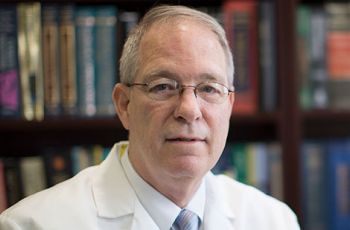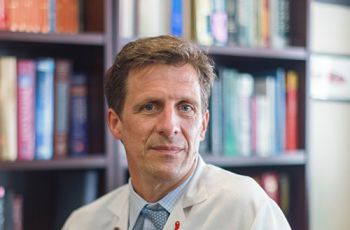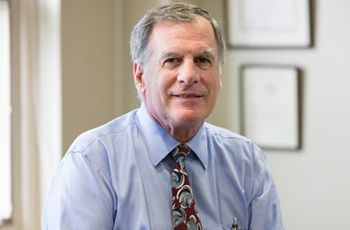Infectious Diseases
GW infectious disease expert, David Parenti, M.D., professor of medicine, was quoted in The Washington Post on ways students can keep healthy during the flu season.
This year’s flu season is in full swing, with District health officials reporting 310 cases since September. That’s already more than triple the amount seen last season—and there’s still about half the season left.
Marc Siegel, M.D., assistant professor of medicine, was interviewed by WGN Radio in Chicago on this year's unusually early and severe flu outbreak. He was also interviewed on Voice of America about the outbreak.
Gary Simon, M.D., professor of medicine, was interviewed by Reuters on US Centers for Disease Control (CDC) recommendations to do spinal taps on patients who have received contaminated steroid injections less than 42 days ago, even if they show no symptoms of meningitis.
David Parenti, M.D., professor of medicine and director of the Traveler's Clinic, worked with The Washington Post to create an overview of the most common viruses and bacteria travelers experience and suggestions on how to avoid them.
David Parenti, M.D., professor of professor of medicine, microbiology, immunology, and tropical medicine, tells Washingtonian magazine what to look out for when it comes to the West Nile virus.
WASHINGTON (April 30, 2012) – In a surveillance study of over 12 million bacteria, investigators at The George Washington University and Providence Hospital found E. coli antimicrobial resistance to ciprofloxacin, the most commonly prescribed antimicrobial for urinary tract infections in the U.S.,…
Dr. Gary Simon, Walter G. Ross Professor of Medicine and of Microbiology and Tropical Medicine at the School of Medicine and Health Sciences and vice-chair of the Department of Medicine and director of the Division of Infectious Diseases at the Medical Faculty Associates, was interviewed by the…
Infectious disease researchers strive to halt the harmful effects of viruses — and for Richard Whitley, M.D. ’71, the same was true, for the first 25 years of his career. “I used to try and keep herpes simplex out of people — particularly out of the brain,” he says.



